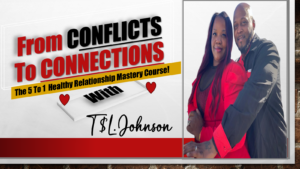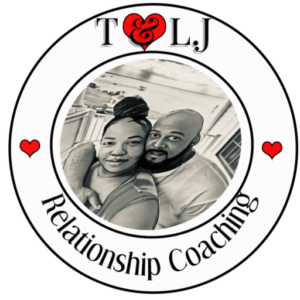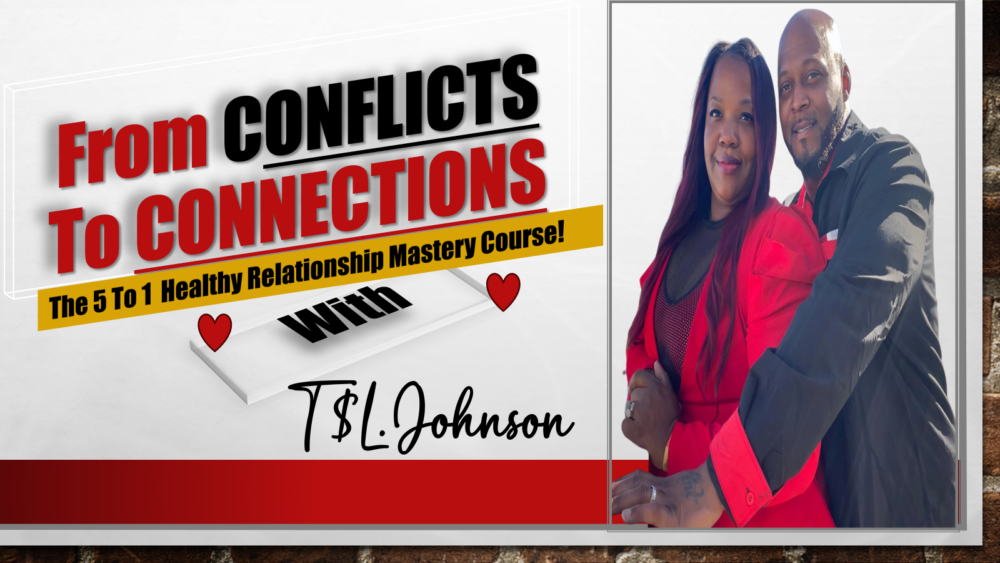Embrace Your Feelings
Recognize Pain as Part of Life
First off, let’s be real: pain happens. Whether it’s physical, emotional, or mental, it’s something we all go through. I’ve found that acknowledging this pain rather than shoving it down is super crucial. You know, sometimes we try to act tough and just brush things off, but that only builds up tension. It’s like shaking a soda can – eventually, it’ll explode!
Embracing my feelings lets me process them better. I would sit down with a journal or chat with a friend about what I’m feeling. Pouring out those thoughts can be liberating. Plus, it’s only when we recognize our feelings that we can communicate them effectively. No more, “I’m fine,” when I’m actually not!
When you allow yourself to feel, you’re actually starting to pave the way for love and understanding in your conversations. That recognition opens up space for compassion—both for yourself and those around you.
Express Without Blame
Ah, that’s the tricky part! I remember countless moments where I wanted to lash out during my painful times. But here’s what I’ve learned: speaking from a place of anger or frustration rarely helps. Instead, I focus on expressing how I FEEL rather than pointing fingers.
For example, instead of saying, “You always make me feel this way,” I would say, “I feel hurt when this happens.” This minor change shifts the conversation from blame to sharing personal experience. I’ve seen how this approach can feel like a bucket of cold water on a wildfire. The heat dissipates, and you can actually have a constructive conversation.
By expressing without blame, I’ve created more intimate connections with others. They respond better because they feel less attacked and are more open to understanding where I’m coming from. Trust me, it’s transformative!
Practice Patience with Yourself
When in pain, you might feel like you need to rush through it or “get over it” quickly. But can I encourage you to take a step back? Patience is a virtue – one I’ve had to learn the hard way. It’s perfectly okay to take your time working through these feelings.
To practice patience, I often remind myself that healing isn’t linear. Some days I feel great, and other days I’m just dragging myself through. And when I give myself space to work through these ups and downs, I can communicate more lovingly. This patience with myself makes it much easier to show love to others, even when I’m struggling.
Remember that self-love is critical in times of pain. By being gentle with myself, I create a calmer atmosphere that ultimately impacts how I interact with others. It’s all about setting that tone of love amidst the chaos.
Communicate Openly and Honestly
Share Your Needs
Let’s face it: we’re all busy, and sometimes, people don’t realize what we need unless we say it out loud. I’ve been there! So, if I’m feeling low and need a listening ear or some space, I just put it out there. Sure, it can be uncomfortable, but keeping quiet about my needs only builds up resentment.
Expressing needs builds a bridge of understanding between me and my loved ones. I remember when I told a friend, “Hey, I really need a hug right now,” and after that, it opened up a space for them to share their own struggles. It’s amazing what one honest request can do!
Plus, being open helps others know how to support me better. And when people feel like they’re part of my journey, it strengthens those connections. It becomes a two-way street of love and understanding!
Listen Actively
Okay, let’s flip the script. We’re not just here to talk about ourselves; we need to listen too! Sometimes when I’m feeling down, my instinct is to just vent about my own pain. I’ve realized, though, that listening to others can also lift some of that burden off my shoulders.
I try to practice active listening by giving my full attention. This means turning off distractions and genuinely engaging in the conversation. I might nod along, make eye contact, and ask questions. Not only does this show that I care, but I often find myself inspired by others’ stories!
This active listening opens up a dialogue where love can flourish. It’s about creating a space where everyone feels heard and understood. It’s a powerful shift that can form solid relationships, even during tough times.
Be Authentic
At the end of the day, authenticity is key. If I’m pretending that everything’s fine when it’s not, I’m only hindering my ability to be genuinely connected with those around me. I’ve learned that honesty doesn’t mean being harsh! It just means sharing my truth in a way that’s respectful to everyone involved.
When I’m authentic, I notice that people appreciate my vulnerability. It encourages others to open up too. And let’s be clear: that doesn’t mean I spill all the beans 24/7, but I do find moments where being real is necessary for building trust in my relationships.
Being myself allows love to flow freely in my conversations. Letting my guard down leads to deeper connections, and that’s something I cherish, especially when facing my own battles.
Show Compassion to Yourself and Others
Practice Self-Compassion
This one has been quite the journey for me. On some days, I’m a little too hard on myself, especially when I’m in pain. But I’ve discovered the beauty of self-compassion. It’s not just about feeling sorry for myself; it’s about treating myself with the same kindness I’d offer a friend.
Just like how I would console a friend in their time of need, I’ve learned to extend that care to myself. Whether it’s taking a bubble bath or simply giving myself a pep talk, self-compassion helps me to acknowledge my pain without drowning in it. It’s more about being a friend to myself, instead of that harsh critic.
This practice has made a huge difference in how I communicate with others. When I feel compassion towards myself, I naturally overflow with compassion for those I interact with. It’s a win-win!
Extend Compassion to Others
Let’s not forget that everyone has their battles to face! When I’m in pain, I sometimes forget that others are also dealing with hurt. I try my best to approach others with kindness, even during my toughest days. This doesn’t mean I can’t share my pain, but it’s a gentle reminder that empathy goes a long way.
I remember a time when I reached out to a friend, who felt overwhelmed, and simply said, “I’m here for you.” That small act of compassion turned into a shared moment where we both felt better. It’s a reminder that pain can sometimes bond us, rather than isolate us.
Extending compassion fosters an environment of love and support. When we lift each other up, it becomes easier to speak lovingly, even when we’re grappling with our own challenges. It’s a beautiful cycle.
Be Supportive of Each Other’s Journeys
Building a community of support is invaluable. I’ve found solace in surrounding myself with people who get that life isn’t always peachy. When we share our journeys, it helps remind each of us that we aren’t alone in our struggles.

Being supportive can be as simple as sending a text message or sharing an inspirational quote. I’ve taken to uplifting my friends with genuine compliments or small gestures to remind them that I care. This, in turn, creates an atmosphere where love thrives, even amidst pain.
When we rally together and support one another, it takes the burden off feeling alone in our hardships. It’s comforting to know that someone’s got your back, and it deepens that bond of love we all yearn for.
Establish Boundaries
Know Your Limits
Sometimes, pain can be overwhelming, and I’ve learned the hard way that setting boundaries is vital to my well-being. It’s not about shutting people out, but rather protecting my energy when I need to recharge. I’ve had to communicate, “Hey, I can’t handle this right now” without feeling guilty.
Understanding my limits allows me to speak more lovingly. When I’m stretched too thin, I can become irritable or snappy. But when I take a step back and recharge, I can approach situations with a warmer heart. It’s all about balance.
Knowing my limits helps be upfront about what I can give in relationships, and that honesty can spare everyone involved from unnecessary pain. It allows for love, but with healthy boundaries!
Communicate Boundaries Clearly
I can’t stress enough how crucial clear communication is in this process. After realizing my limits, I’ve worked on being open about them. Whether it’s with family, friends, or coworkers, I tell them what I need in a way that doesn’t come off as harsh.
For instance, expressing, “I need a bit of space right now” is way more constructive than just ghosting someone. Clear boundaries ensure that we can maintain our relationships in a loving way while taking care of our own needs.
By being upfront, I’ve noticed less confusion and hurt feelings on all sides. And that’s what we want, right? A loving environment where everyone feels respected and understood.
Respect Others’ Boundaries
With all this talk about boundaries, it’s just as vital to respect those of others. When I establish my own limits, I remind myself that everyone has their struggles too. If a friend says they can’t talk right now, I listen and give them their space. It’s about mutual respect.
Not pushing people past their comfort zones creates a nurturing space. When I affirm someone’s boundaries, it strengthens our relationship and shows that I value them. And guess what? They often reciprocate!
Boundaries aren’t walls; they’re gateways to deeper understanding and love. Establishing and respecting them has significantly improved my ability to communicate lovingly, even through pain.
Foster Connections Despite Pain
Engage in Shared Activities
One thing I’ve discovered is that shared activities can be a fantastic way to connect with others, regardless of pain. I might not feel up to running marathons, but grabbing coffee or doing a hobby with someone can work wonders. Engaging in something enjoyable takes the focus away from our pain and shifts it toward connection.
When I’m participating in shared activities, I often find laughter creeping in, even in tough times. Making time for those little moments with friends or family can foster bonds that help us weather the storm together. It reminds us that, despite the struggles, there’s still joy to be found.
Plus, these moments can spark deeper conversations. It’s during these relaxed times that heart-to-heart discussions often happen. It becomes a space of love, understanding, and healing.
Reach Out for Support
It can be difficult to lean on others when I’m in pain, but reaching out has been one of the best lessons I’ve learned. I’ve found that my friends and family genuinely want to be there for me. Whether I’m seeking advice or just need someone to vent to, it’s okay to ask for help!
Building connections means being vulnerable enough to share when I’m struggling. I’ve often been met with open ears and lots of love when I summon the courage to reach out. We’re human, after all, and we all need that support sometimes.
Sharing those burdens helps lighten the load. Through my connections, I’ve learned we can create a support system that fosters love, even when times are tough. It’s amazing what a little vulnerability can do!
Follow Up and Check In
To wrap up, checking in with those I care about is crucial when fostering connections. When someone shares their pain with me, I always try my best to follow up with them later. It shows that I genuinely care and want to be part of their journey, too.
Whether it’s a simple text saying, “Hey, how are you doing?” or planning to hang out again, it fosters a continued bond. I find that when I put in the effort to connect, it strengthens our relationship and cultivates love amid difficulties.
These little gestures matter more than we think. It reminds us that we’re not alone in this world, and pain becomes a shared experience that brings us closer together.
FAQ
What is the most important part of speaking with love during painful times?
The most important part is to embrace your feelings. Acknowledging your pain allows for genuine communication without the need to mask or hide what you’re going through.
How can I express my pain without sounding like I’m blaming others?
Focus on using “I” statements rather than “you” statements. For instance, say “I feel sad when…” instead of “You always make me…” This shifts the focus to your feelings rather than placing blame.
Why is patience important when dealing with pain?
Patience is crucial because healing and processing emotions take time. By being patient with yourself, you can allow for more meaningful and less reactive communication with others.
How do I start establishing boundaries?
Start by recognizing your limits and communicating them openly with those around you. It’s essential to express what you’re comfortable with to ensure that relationships remain healthy and respectful.
What can I do to maintain connections while I’m in pain?
Engage in shared activities, reach out for support, and check in with others. These actions foster connections and remind everyone that love and care exist even amidst pain.

Schedule Your First 20-Minute Coaching
Call With Us Today to see if we fit . You pick the price!
Click Here




